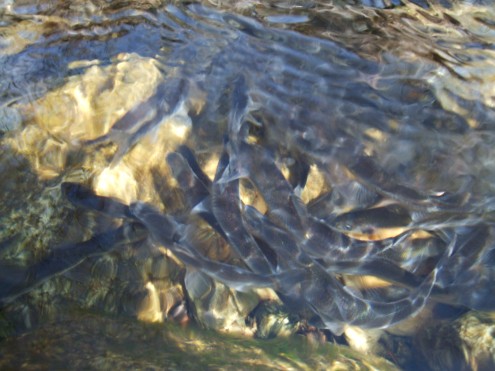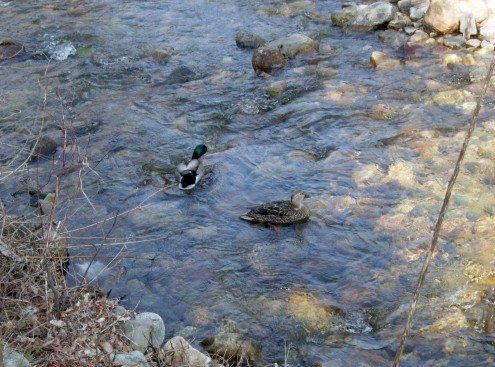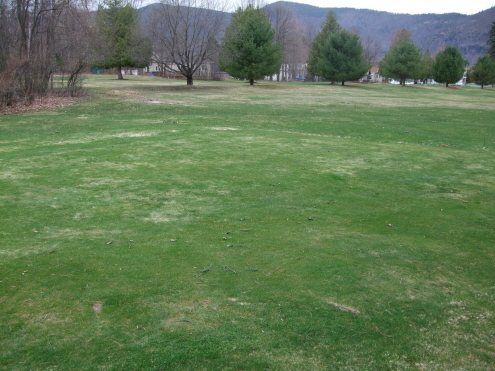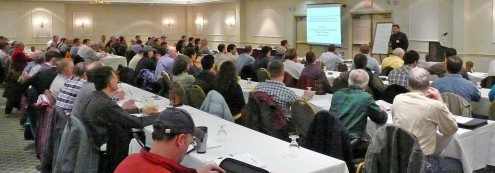
LGA Lake Steward Monika LaPlante holds samples of three invasive species Eurasian watermilfoil, curly-leaf pondweed and zebra mussels. These were pulled off a boat at Norowal Marina during her first day on the job for 2010.
LGA lake stewards are once again on duty at boat launches around Lake George for the summer, inspecting boats and educating boaters on how to prevent the spread of invasive species.They began their work on Memorial Day weekend.
Coordinated by the LGA, the program seeks to contain the spread of three species already present in Lake George: Eurasian watermilfoil, zebra mussels, and curly-leaf pondweed, as well as a possible fourth – brittle naiad – which was found and removed from Dunham’s Bay last summer. The program also helps prevent new invasive species from being introduced, such as spiny waterflea and water chestnut, which are present in nearby water bodies.
On her first day out, Friday, May 28, Lake Steward Monika LaPlante removed three invasive species – milfoil, curly-leaf pondweed and zebra mussels – from one of the boats she inspected that day. Monika and fellow stewards Lee Peters, Mark Altwerger and Brendan Carberry, were trained in inspection, identification and data collection by the LGA and at the Adirondack Watershed Institute at Paul Smiths College, in cooperation with the Adirondack Park Invasive Plant Program and the Lake Champlain Basin Program.
LGA stewards will be located at Norowal Marina and other launches in the south end, and Mossy Point, Hague Town Launch, and Rogers Rock in the north end on weekends throughout the summer. In addition to inspecting the boats for aquatic invasive species, the stewards will also remind boaters of the DEC firewood regulation, new in 2009, which limits the transport of untreated wood to 50 miles, in an effort to protect forests from insect invaders, such as the Emerald Ash Borer (EAB) and Asian Longhorned Beetle (ALB), which have had a devastating impact on tree populations in the Great Lakes and the Northeast regions.
Emergency funding for the program this year was provided by the town of Hague, the town of Bolton’s Local Development Corporation, and the Lake George Park Commission. “In past years, the LGA has received funds from New York State through the Lake George Watershed Coalition to run this essential prevention model program, which is respected across New York and New England,” said Walt Lender, LGA’s executive director. “We are grateful to secure funding from other sources this year, including grant funding provided by the Helen V. Froelich Foundation. Without preventative measures like this, Lake George could suffer the kind of devastating impact, both ecologically and economically, that we’ve seen in other lakes,” Lender said.
Last summer, the stewards inspected 3,886 boats at launch sites around the lake between May 23 and August 28, and collected 162 samples, with 75 of those being invasive species. The invasive samples included 48 specimens of eurasian watermilfoil, 13 of curly-leaf pondweed, seven of zebra mussels, and seven of water chestnut (which is not currently found in Lake George). Eurasian watermilfoil was removed on 22 occasions from vessels entering at Mossy Point and 21 times from vessels entering at Norowal Marina. A total of 158 different water bodies were visited in the two weeks prior to their entrance into Lake George. Many of these water bodies are known to have invasive species.
The most common previously visited water bodies include the Hudson River, Lake Champlain, Great Sacandaga Lake, and Lake Hopatcong (NJ). With 65 boats having last visited the Hudson River and 62 last on Lake Champlain, which contain 91 and 49 invasive species respectively, along with last year’s discovery of the invasive zooplankton the spiny waterflea in Great Sacandaga Lake, the importance of having Lake Stewards at our launches to help protect Lake George from new invaders is very apparent.
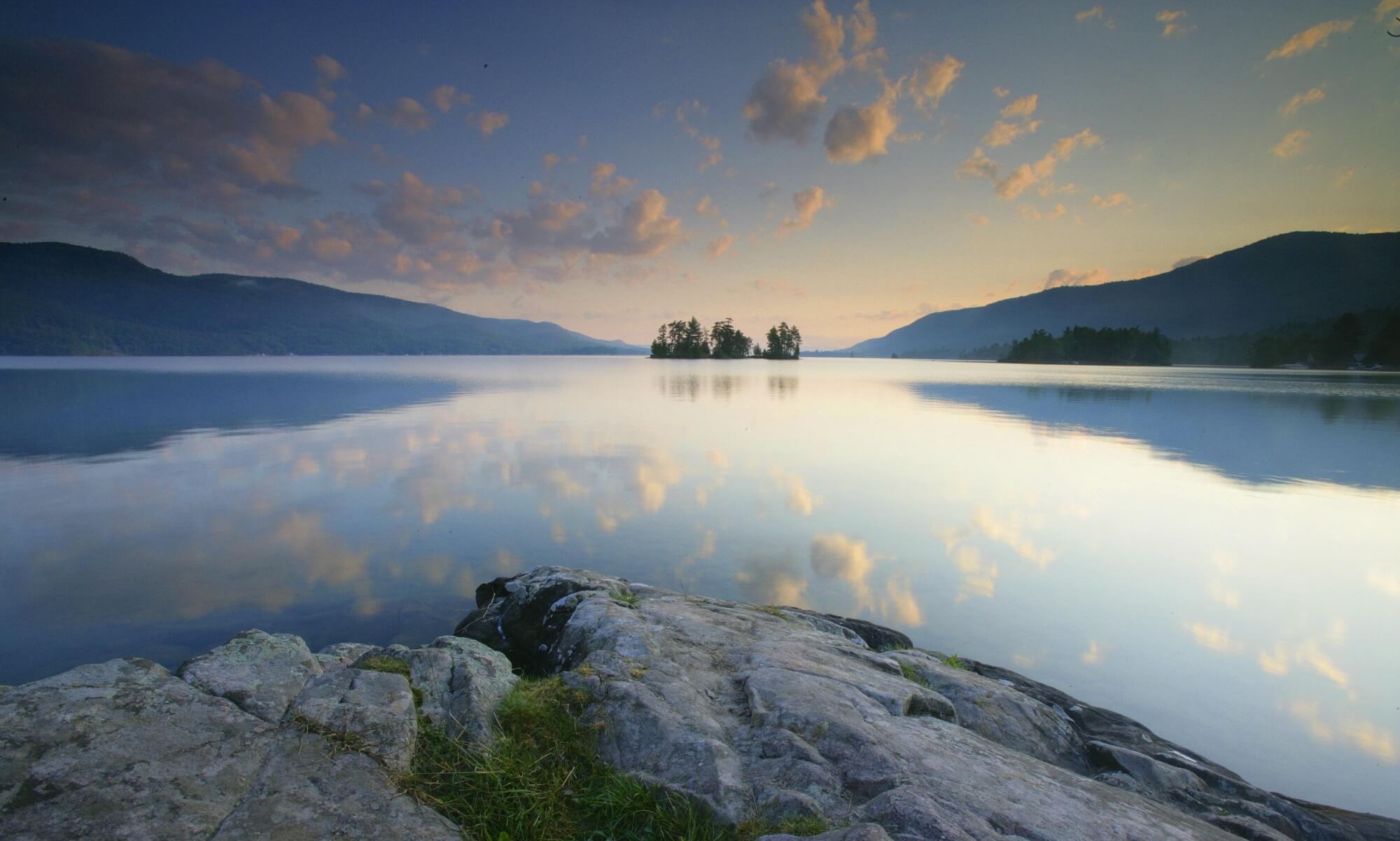
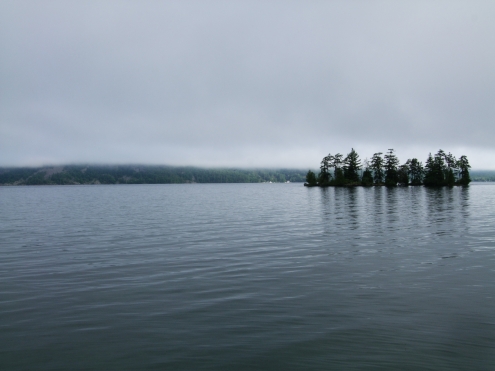


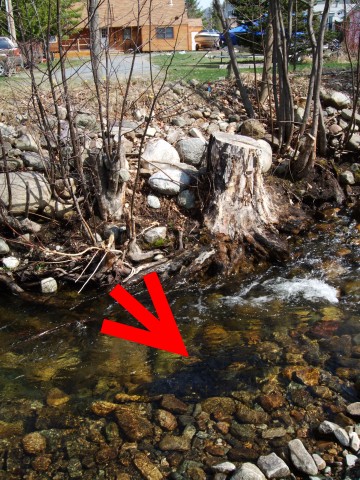 A school of smelt can be seen in Foster brook.
A school of smelt can be seen in Foster brook. 